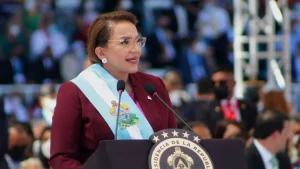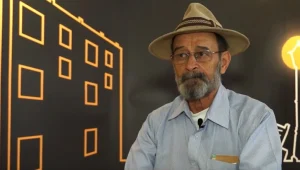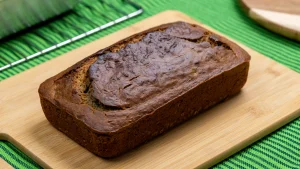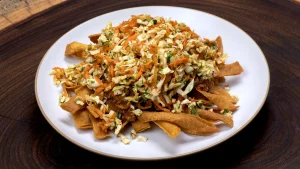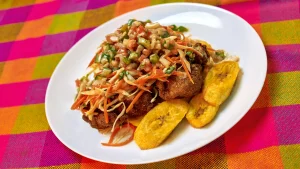Biography of Jose Manuel Zelaya Rosales

José Manuel Zelaya Rosales, was born into a wealthy family in the city of Catacamas, department of Olancho, on September 20, 1952.
His parents were Hortensia Esmeralda Rosales Sarmiento and José Manuel Zelaya Ordóñez. Manuel Zelaya is a Honduran politician and is married to Xiomara Castro Sarmiento, with whom he had four children: Zoe, Héctor, Hortensia and José Manuel.

Who is Mel Zelaya?
He was elected President of Honduras after winning the 2005 elections as a member of the Liberal Party, defeating his opponent from the National Party, Porfirio Lobo Sosa. He assumed office on January 27, 2006, succeeding Ricardo Maduro for the term that would last until 2010.
However, on June 28, 2009, he was removed from office and subsequently expelled from the country, with Roberto Micheletti assuming the presidency. Zelaya’s removal was ordered by the Supreme Court of Honduras due to alleged serious crimes, such as treason and others. Meanwhile, his supporters claimed that he was illegally expelled by the military and the Court.
These events were condemned by a large part of the international community, including the Organization of American States and the United Nations, which advocated for Zelaya’s reinstatement. He acted as a president in exile while staying at the Brazilian embassy in Tegucigalpa from September 22, 2009, after clandestinely returning to the country. On January 27, 2010, he left the country and headed to the Dominican Republic with a safe conduct signed by President Porfirio Lobo Sosa, where he stayed as a «distinguished guest.»
On May 28, 2011, Zelaya returned to Honduras after almost 2 years, this time to continue his political life and to facilitate Honduras’ return to the OAS after being suspended in 2009.
Education
Zelaya Rosales received his primary education at Niño de Jesús de Praga and Luis Landa schools, and at the Salesian Institute San Miguel in Tegucigalpa.
He began university studies in civil engineering and completed 6 years and 11 approved courses. However, in 1976, he abandoned his studies to take over the family business due to his father’s arrest, who was implicated in alleged murders committed on the accused’s property. According to his Minister of the Interior, Víctor Meza, this episode «shaped him.»
Political Career
Manuel «Mel» Zelaya joined the Liberal Party of Honduras (PLH) in 1970 as the coordinator of organization and departmental adviser in Olancho for the Rodista Movement (MLR). In 1983, engineer José Azcona del Hoyo broke away from the MLR.
This split gave rise to a new faction within the Liberal Party, which was called the «Azconista Movement,» and Manuel Zelaya Rosales joined it. In November 1985, José Azcona del Hoyo won the presidential elections, and ‘Mel’ Zelaya obtained his first seat as a deputy (representing the department of Olancho) in the Honduran Congress.
During his first term as a deputy, Manuel Zelaya also served as the President of the Natural Resources and Oil Committees of the National Congress. He also held the position of Secretary of the Board of Directors of the National Congress.
In 1990, during the presidency of the nationalist Rafael Leonardo Callejas, Zelaya was re-elected as a deputy to the National Congress. Again, in 1994, under the presidency of Carlos Roberto Reina, he served as the Minister and Executive Director of the Honduran Social Investment Fund (FHIS).
He was also a Deputy for the Department of Francisco Morazán from 1998 to 1999, an advisor to President Carlos Roberto Flores Facussé in 1998, Secretary of Organization and Propaganda of the Central Executive Council from 1999 to 2004, and a member of the National Convergence Forum (FONAC), among other important public positions.
In 2005, the Liberal Party presented Manuel Zelaya Rosales as its candidate for the presidential elections. ‘Mel’ emerged victorious, defeating the candidate of the ruling National Party, Porfirio Lobo Sosa.
On January 27, 2006, Manuel Zelaya Rosales assumed the presidential office, succeeding Ricardo Maduro. Halfway through his presidential term, and contrary to members of his own party, Zelaya took an unexpected turn in national politics by announcing that his government would lean towards leftist and socialist tendencies.
In 2009, Manuel Zelaya acted as a double agent between the United States and the Bolivarian Alliance for the Peoples of Our America (ALBA), shortly before the coup d’état on June 28, 2009, according to the leaked State Department cable number 210866 released by WikiLeaks.
In this cable, it narrates the details of the OAS summit held on June 2 and 3, 2009, in San Pedro Sula. At this meeting, the ALBA countries presented a draft called «our text» for the approval of Cuba’s admission to the OAS. US Secretary of State Hillary Clinton presented a proposal: to lift the ban on Cuba as long as Havana adheres to the principles of the OAS. Zelaya, according to the cable, mediated between the US and the ALBA countries.
Zelaya informed the US about his difficulties in convincing his new partners (from ALBA), whom he threatened to withdraw from the Alliance. Zelaya even made a phone call to Fidel Castro to secure his agreement to the compromise text. The former Cuban leader gave his approval, which allowed the other countries to accept the draft. What the cable reveals is that the draft accepted by Castro, Chávez, and Ortega was drafted by the US using Zelaya as a mediator.
On January 31, 2011, Manuel Zelaya denied the WikiLeaks website’s claims and denied being a double agent for the US. «What is noteworthy about the imperial diplomats’ diplomatic cables is how seriously they take their mission to ‘interpret’ things that other countries do from their own benefit. They end up confusing day with night, black with white, and in general, any attitude that is adverse to them. They will never understand the right-wing factions of the continent that as sovereign countries, we have every right to fight our battles with the perspective of winning them, and that is precisely what we achieved with the annulment of resolutions against Cuba and our opening towards southern socialism,» said the former president.
That same year, the Appellate Court of the Supreme Court of Justice of Honduras annulled all corruption trials against him that were pending since his removal from the presidency in 2009. According to his defense attorney, the resolution was made considering that «due process had been violated as he was in a state of defenselessness.»
In response to the ruling, Zelaya expressed his willingness to return to Honduran soil, which he did on May 28 from Managua, Nicaragua, accompanied by the Foreign Ministers of Venezuela, Nicolás Maduro; the Dominican Republic, Carlos Morales Troncoso; the Venezuelan ambassador to the Organization of American States, Roy Chaderton; and Colombian senator Piedad Córdoba.
The return was facilitated by the «Agreement for National Reconciliation and the Consolidation of the Democratic System in the Republic of Honduras,» signed by President Porfirio Lobo and Zelaya himself, with the mediation of the governments of Venezuela and Colombia.
Presidency
Before taking office, he demanded that the national congress approve the law on citizen participation, and the law was passed on the same day of Manuel Zelaya’s inauguration. This law follows the principles of liberalism, which believes that the people should participate in public decisions, in contrast to conservatism, which believes that the people do not have the capacity to govern themselves.
2006
In his first year of government, President Manuel Zelaya was marked by a wave of protests from different social groups. The Zelaya government faced pressure from the teachers’ union, which demanded the fulfillment of the teacher’s statute as an acquired right and labor conquest, but the president reiterated the statute and described it as fair, reasonable, and deserving for the educators of Honduras.
Meanwhile, the US government announced that this was due to acts of corruption carried out by the National Registry of Persons, which distributes the National Identification Card. However, many observers saw this as a way for the US government to pressure Manuel Zelaya and somehow prevent his relationship with Venezuelan President Hugo Chávez. On October 27, 2006, the visa application appointment process was resumed by the US embassy.
Despite all the problems he had to face during his first year in office, Manuel Zelaya expressed satisfaction with the progress of his administration in the field of the economy. «We are closing 2006 with better indicators than 2005, 2004, and 2003,» the president said to the press.
And he added, «There is price stability that is allowing us to close the year with the lowest level of inflation recorded in the past 16 years.» This year, the Economic Commission for Latin America and the Caribbean (ECLAC) placed Honduras among the top countries in economic growth in the Central American region.
2007
In 2007, Manuel Zelaya Rosales began his program to protect the forests of Honduras, particularly in one of the very important areas: the Rio Plátano ecosystem in the Honduran Mosquitia. He then proceeded to reappoint most of his ministers to their positions; however, Minister of Education Rafael Pineda Ponce and the head of the Honduran Social Investment Fund (FHIS), former Mayor of Puerto Cortés Marlon Lara, were not as fortunate and were replaced.
On January 21, Zelaya’s government benefited from the external debt forgiveness granted by the Inter-American Development Bank. Manuel Zelaya reacted with excitement and expressed gratitude to the organization for forgiving at least 1.4 billion dollars.
Among Zelaya’s achievements in early 2007 was the reduction of fuel prices. On April 26, taxi drivers threatened the Honduran president with further strikes if a new reduction in fuel prices was not approved.
By the end of 2007, Zelaya made a diplomatic shift by approaching governments with socialist tendencies, such as Nicaraguan President Daniel Ortega and Venezuelan President Hugo Chávez Frías, showing his interest in integrating Honduras into the Bolivarian Alliance for the Americas (ALBA).
2008
At the beginning of the year, Zelaya approached Venezuela with the objective of joining Petrocaribe. This allowed Honduras to purchase fuel on credit, with 60% of the payment due in three months and the remaining portion paid over 25 years with a 1% interest rate, with the opportunity to invest a portion of the saved capital in social investment projects. Initially, some Honduran political sectors opposed this, citing possible national debt and the threat of corruption in the management of the mentioned fund. Eventually, the Congress approved Honduras’ entry into Petrocaribe.
2009
In mid-2009, Zelaya began promoting a plebiscite to lift term limits for the presidency. The Supreme Electoral Tribunal, the Attorney General’s Office, the Supreme Court of Justice, and the Congress of the Republic have declared this consultation illegal. Zelaya’s own party, the Liberal Party of Honduras, has also opposed the President.
On June 24, Zelaya announced the removal of General Romeo Vásquez Velásquez, Chief of the Honduran Joint Chiefs of Staff, after he refused to distribute the voting cards for the controversial consultation. Shortly after, the Minister of Defense and the Chiefs of the three branches of the Honduran Armed Forces resigned. The Supreme Court unanimously voted against the measure and ordered the General to remain in his position. In an interview with CNN, Zelaya stated that he had not actually removed the General, he had only announced it.
On June 28, 2009, the day the popular consultation was supposed to take place, Zelaya was forcibly removed, wearing only underwear, from his residence by a group of military personnel, following the orders previously given by the Supreme Court of the country. The day before, the Honduran Congress had opened an investigation to determine if Zelaya had violated the Constitution and if he was mentally stable.
Zelaya responded by calling the investigation arbitrary and threatening to remove the President of Congress, Roberto Micheletti, through a presidential decree. After being detained and expelled from the country without a prior trial, he arrived in Nicaragua from Costa Rica on Sunday, July 29th, in the evening.
During a session of the National Congress of Honduras on June 28, 2009, an alleged resignation letter from President Zelaya was read and accepted. From Costa Rica, President Zelaya denied having written any such letter of resignation and stated that it demonstrated that it was not just a military coup with the participation of the other branches of power in Honduras.
The date indicated on the resignation letter was indeed June 25th, three days prior to the arrest and deportation of the president. Hours later, the Congress reconvened and unanimously resolved to remove President Zelaya, considering that his government actions had violated the Constitution and the legal framework of the country. They designated the President of the Congress, Roberto Micheletti, to succeed him, with the commitment that he would remain in office until the end of Zelaya’s term in January 2010. No country recognized Micheletti’s government and they continued to support and recognize Zelaya as the President.
On September 21st, the ousted president entered Honduran territory, taking refuge in the Brazilian embassy. In his initial statements, he expressed his hope to initiate a dialogue with the government of Roberto Micheletti «for the reestablishment of constitutional order.» On December 2nd, the National Congress of Honduras, in response to the request from the negotiating committee of the so-called «Guaymuras Dialogue,» resolved to reject Zelaya’s return to power. The decision was adopted with 111 deputies voting against the restitution of the deposed president, 14 in favor, and 3 reported absences.
Actions of His Government
With Support
- Maintenance of international treaties and incorporation into new international trade agreements such as ALBA, TLC El Salvador-Honduras-Taiwan, TLC Honduras-El Salvador-Guatemala-Colombia, TLC Chile-Central America-Panama.
- Increased the minimum wage to 5,500 Lempiras (291 USD) through a decree, aiming to cover the basic food basket.
Without Support
- The unfinished project known as «Hoy No Circula» began to strain his relationship with the President of the National Congress and the President of the Supreme Court.
- The closure of the outdated Toncontin Airport, one of the most dangerous airports in the world, for one month due to the Taca airline accident and his attempt to relocate it to a modern terminal in Comayagua led to the right-wing manipulating information to discredit him and caused conflicts with the media, which later supported the coup.
- The increase in the minimum wage, which was raised to 5500 Lempiras at the end of 2008 to benefit the less privileged classes in the country. From the perspective of large business owners, they disagreed with the new increase as they considered it excessive for accreditation and devalued their businesses.
Post-Presidency
In March 2010, Venezuelan President Hugo Chávez appointed Zelaya as the chief coordinator of the political council of Petrocaribe. Chávez stated that he would be willing to recognize the government of Porfirio Lobo in Honduras if it allowed Zelaya to return and engage in political activities. On the other hand, Zelaya was sworn in as a deputy of the Central American Parliament on September 17th of the same year.
Political Party
The Supreme Electoral Tribunal of Honduras (TSE) declared the Liberty and Refoundation Political Party (LIBRE) legal after its request was presented to the highest political tribunal in Honduras. Former President Zelaya Rosales, who remained in the struggle for the regularization of his movement, the «National Front of Popular Resistance,» maintains that this new political institution belongs to the people and will serve as a launching pad for his wife, Professor Xiomara de Zelaya, as a presidential candidate.
Awards
- 1994-1998: Distinguished as Best Minister in the Governments of Carlos Roberto Reina and Carlos Roberto Flores by the national press.
- In 1996, he was honored as Best Friend and Brother of the Garifuna, Indigenous, and Miskito Peoples by ethnic organizations in Honduras.
- On August 23, 2006, he received the Francisco Morazán Central American Parliament Order in the Grade of Grand Cross for «his invaluable contribution and support to the process of Central American integration, and the work carried out by the Central American Parliament.»
- Declared Brother and Standard-Bearer of the Afrodescendant Agenda in Central America in September 2008 by the Central American Black Organization.
- In May 2009, he received the National Order of José Matías Delgado in the Grade of Grand Cross, Gold Plaque from the Republic of El Salvador.
- In June 2009, he received the Medal of the Legendary Ernesto Che Guevara from the National Federation of Secondary Students.
- In August 2009, he received the keys, medal, and parchment of Distinguished Guest from the city of Mexico.
